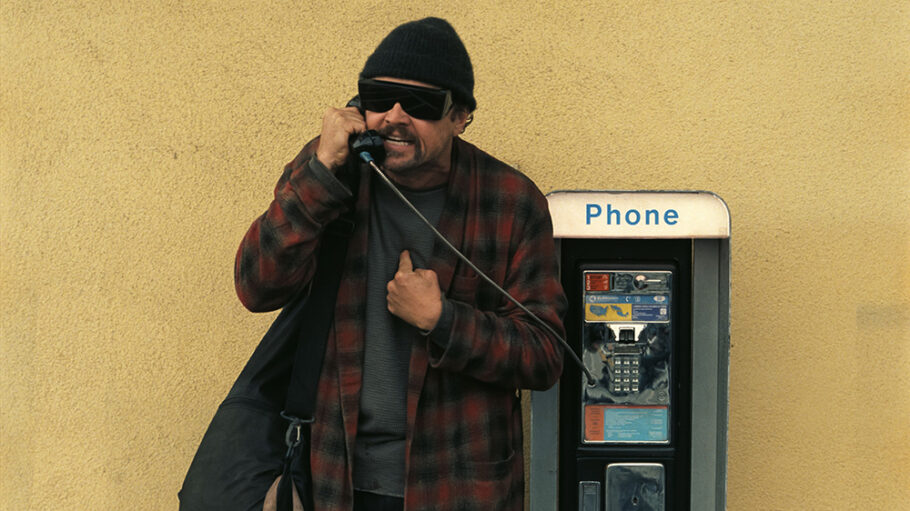Every Monday morning, Virginia-based cinema owner Mark O’Meara pores over grosses to see how the newest releases are playing in his area. Last weekend didn’t offer much to celebrate as some well-reviewed Oscar contenders collapsed at the box office.
A24’s “The Smashing Machine,” a sports biopic starring Dwayne Johnson as MMA fighter Mark Kerr, “died pretty quickly,” O’Meara reports. Meanwhile, “nobody did really well with ‘Roofman,’” a dramedy featuring Channing Tatum.
“It was slow as hell,” O’Meara says. “I thought the movies were good. There was a lot of hype with them that just didn’t happen.”
The D.C. metro area wasn’t the only place where those films failed to connect. “Roofman” debuted to a paltry $8 million, while “Smashing Machine” endured a brutal 70% decline in its sophomore outing, bringing revenues to $10.1 million. As for other films aimed at adults, “Kiss of the Spider Woman,” a $34 million-budgeted musical adaptation with Jennifer Lopez, fizzled with $850,000 — albeit from far fewer theaters than Tatum’s film.
Even Paul Thomas Anderson’s “One Battle After Another,” led by Leonardo DiCaprio, struggled to break out despite being hailed as a generational masterpiece. Though the global haul of $140 million is impressive for a film that’s original, R rated and nearly three hours long, “One Battle” requires roughly $300 million to break even. That’s because Warner Bros. spent more than $130 million on production and $70 million on promotional efforts, and ticket sales are typically split 50-50 between studios and theater operators. Meanwhile DiCaprio typically gets first-dollar gross on his movies, meaning he gets a percentage of box office revenues before the studio recoups any costs.
“These prestige-type movies have failed to create a sense of FOMO among audiences,” says Fandango’s box office analyst Shawn Robbins. “They weren’t event-ized enough.”
Robbins also wonders whether audiences have been trained to wait for streaming debuts to see certain films, particularly the ones that don’t feature superheroes, marauding dinosaurs or Christopher Nolan-style pyrotechnics. Since COVID, studios have shrunk the amount of time that films are exclusively available in theaters from 90 days to, in some cases, a couple of weeks.
Love Film & TV?
Get your daily dose of everything happening in music, film and TV in Australia and abroad.
“People have come to expect these movies to be available in the home much sooner than they used to be,” he says.
In the case of “Roofman,” backed by Paramount Pictures and Miramax, a lean $19 million budget means that losses will be minimal. Other recent awards fare won’t be as lucky. “One Battle After Another,” which is mounting a multimillion-dollar Oscar campaign, is tracking to lose $100 million, according to studio executives with knowledge of the economics of similar-sized films. A Warner Bros. spokesperson pushed back on those estimates while noting the company has enjoyed a successful year at the box office with hits like “Sinners” and “A Minecraft Movie.”
“Warner Bros. refutes Variety’s anonymous sources and their uninformed estimates,” a studio spokesperson says. “Films across the studio’s slate, including ‘One Battle After Another,’ have achieved financial reward in 2025 with more than $4 billion earned to date.”
The $4 billion figure refers to box office revenue, not profits. However, Warner Bros.’ 2025 slate of triumphs does help offset a loss like “One Battle.” And Anderson’s film is expected to be a major Oscar player, which makes it valuable to the company in ways beyond the balance sheet. Earlier in the fall, a Warner Bros. source pegged year-to-date theatrical profits at roughly $600 million before counting a major winner in “The Conjuring: Last Rites” and a money loser in “One Battle After Another.”
With “The Smashing Machine,” the failure troublingly exposes the risks of A24’s new corporate strategy. In 2024, the indie studio completed a round of funding that pegged its valuation at $3.5 billion. The company has used the capital to back a much pricier slate of films. “The Smashing Machine,” for example, carries a $50 million price tag — tens of millions of dollars more than a typical indie. Meanwhile this December’s Timothée Chalamet-led table-tennis drama “Marty Supreme” has a budget between $60 million to $70 million, making it the most expensive film in the studio’s history. A24 clearly wants to make the kind of mid-budget films that major studios have abandoned, but higher expenses mean flops will hurt more.
A24 mitigated some risk on “The Smashing Machine” by selling off foreign rights. Rival studio executives believe that limits losses on the picture to roughly $10 million, but it will leave a bad taste in the mouth of the studio’s overseas partners, who will shoulder the bulk of the pain.
“This is an epic bust,” says one rival indie executive. “A24 covered themselves, but everyone else internationally got their asses handed to them. They may not want to come back to the well again.”
Although some movies for grown-ups are having a tougher time, analysts hope studios continue to make them. They believe it’ll take films of all shapes and sizes to push moviegoing toward pre-pandemic levels. Revenues remain roughly 20% behind those of 2019.
“Consumers go to the theater a few times a year at most. They gravitate towards what they know; sequels, prequels and spinoffs where they’re less likely to walk away disappointed,” Texas Capital Securities analyst Eric Wold says. “It’s always been tough for studios to put a lot into original IP. Risk of failure is higher.”
From Variety US































